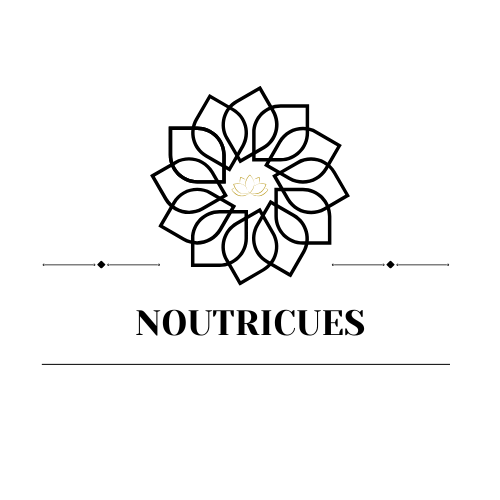Wholeness: What It Really Means (And Why It Matters More Than Ever)
By Lethabo Phaahla
You’ve probably heard the term wholeness thrown around a lot, especially in the wellness space. It sounds beautiful, right? But if we’re honest, most people don’t actually know what it means to live a wholesome life.
For many, it’s this vague, future-oriented idea tied to milestones. “I’ll feel whole when I finally lose the weight... or when I get promoted… or when life finally slows down.”
But wholeness isn’t some distant “when.” And it’s definitely not about perfection or having your life all figured out.
It’s not even about doing all the healthy things 100% of the time.
So, What Is Wholeness?
Wholeness, at its core, is about integration.
It’s the connection between your mind, body, emotions, and spirit. It’s acknowledging every part of you; not just the ones that are productive, polished, or Instagram-worthy.
For me—and how I coach others—wholeness looks like:
Living with purpose instead of just surviving the work week
Making space for rest and ambition
Fueling your body with what serves it, without guilt around joy and celebration
Healing emotionally, spiritually, and physically - because it’s all connected
It’s knowing you’re not a collection of broken pieces waiting to be fixed. You’re already whole. And sometimes, you just need a safe space to come back to that truth.
The Cost of Living Disconnected
So why does this matter?
Because when we don’t live in alignment with our full selves, we feel it; in our bodies, our emotions, and our energy.
The World Health Organization defines health as “a state of complete physical, mental and social well-being and not merely the absence of disease or infirmity” [1]. But somewhere along the way, we reduced health to gym selfies, cutting carbs, and picture-perfect smoothies.
We've somehow ignored the deep stuff. And what happens when we ignore what’s really going on beneath the surface?
We normalize stress, burnout, emotional numbness, and physical symptoms like fatigue, headaches, and even acne (ask me how I know!).
In fact, up to 90% of doctor’s visits are linked to stress-related conditions [2]. That’s huge.
And the stress? It doesn’t just come from deadlines or to-do lists. It shows up when our actions don’t reflect our values. When we silence parts of ourselves just to keep going. When we disconnect.
Wholeness Transforms Health
Here’s the beautiful part: there’s real research behind this.
A study in the Journal of Behavioral Medicine found that individuals with a strong sense of psychological well-being, including meaning, autonomy, and connection, have lower inflammation and reduced risk for chronic disease [3].
Spiritual well-being (not necessarily religion, but that sense of deeper purpose and connection) is also linked to better mental health, less anxiety, and improved physical outcomes [4].
When we take care of all parts of ourselves, not just one, our health doesn’t just improve. It transforms. Again, integration.
Wholeness at Work
And yes, this absolutely applies to your work life too.
Burnout is on the rise. According to Gallup, 43% of workers globally report being “always” or “often” stressed [5]. That’s not just a personal issue, it’s a human energy crisis.
When you’re disconnected from yourself, it spills into everything: your energy, your focus, your relationships, and your performance.
But imagine starting your workday not feeling like you’re already behind.
Imagine showing up nourished, grounded, and aligned; not perfect, but whole. That’s the shift I advocate for people to make.
Because you don’t just need a meal plan or meditation app. You need a lifestyle that honours all of you.
Let Me Leave You With This
Wholeness isn’t a destination, it’s a daily decision.
It’s choosing to slow down and check in.
To ask: How am I doing , really?
And then making small, sustainable shifts from that place of honesty and grace.
Because it's more than just balance, it's about cultivating wholeness.
And because balance looks different for everyone, learn to honour what wholeness looks like for you.
Citations
1. World Health Organization. (1948). Preamble to the Constitution of WHO.
2. American Institute of Stress. (2023). Stress Statistics. Retrieved from https://www.stress.org/stress-research
3. Ryff, C. D., & Singer, B. (2000). Interpersonal flourishing: A positive health agenda for the new millennium. Journal of Behavioral Medicine, 23(4), 375–389.
4. Koenig, H. G. (2012). Religion, spirituality, and health: The research and clinical implications. ISRN Psychiatry. https://doi.org/10.5402/2012/278730
5. Gallup. (2023). State of the Global Workplace Report. Retrieved from https://www.gallup.com
Join our Newsletter
PARTNER WITH US
QUICK LINKS
CONTACT INFORMATION
Email: info@noutricues.com
Copyright © 2024 NOUTRICUES - All Rights Reserved
